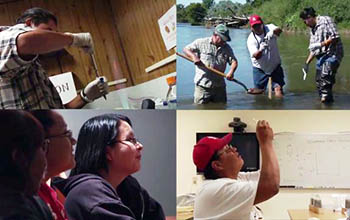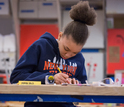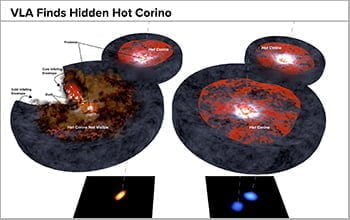
Research News
Pilot projects move forward as NSF brings awardees together
February 23, 2017
France Córdova is the director of the National Science Foundation (NSF). To read more posts from the director, check out her Notes from the Field blog.
Last year, NSF issued its first grants for NSF INCLUDES, a major addition to our portfolio of programs seeking to broaden participation in science and engineering (S&E). In January, I had a chance to meet with the recipients of those grants at our first meeting for principal investigators.
NSF INCLUDES is based on a simple idea: Identify proven, innovative ideas that create access to S&E for groups traditionally underrepresented in those fields, and then scale up those ideas to help more people. The program will accomplish this goal by building alliances, networks and partnerships among those committed to broadening participation.
We took our first big step with NSF INLCUDES in 2016, awarding 40 Design and Development Launch Pilots. The launch pilot awardees will play a critical role in laying the foundation for NSF INCLUDES, setting the standard for how this program moves forward.
NSF INCLUDES aims to ensure that all Americans, no matter who they are or where they come from, have access to opportunities in science, technology, engineering and mathematics (STEM). Black History Month is an excellent time to look at some of the NSF INCLUDES-funded projects that focus on improving STEM access for African Americans, a population currently underrepresented in S&E. All of these projects embody key elements of NSF INCLUDES’ approach.
For example, Designing for Diversity works to establish a national network of makerspaces and fabrication laboratories specializing in computational programs for black and Latino high school students. The project’s partners identify the most promising ways to design computational making programs with the goal of inspiring and encouraging young people to pursue STEM education and careers.
The project has a wide variety of collaborators, including the New York Hall of Science and the Carnegie Foundation for the Advancement of Teaching, as well as a national leadership team representing universities, businesses, cultural organizations, foundations and leaders in the maker movement.
An NSF INCLUDES grant to the National Society of Black Engineers supports the 50K Coalition, a collaborative of more than 40 organizations committed to increasing the number of bachelor’s degrees awarded annually to women and minorities from 30,000 to 50,000 by 2025. Other partners include the American Indian Science and Engineering Society, the Society of Hispanic Professional Engineers and the Society of Women Engineers.
NSF also issued an INCLUDES award to Tuskegee University, a historically black university, in support of the South East Alliance for Persons with Disabilities in STEM. The project, which builds on the NSF-funded Alabama Alliance for Students with Disabilities in STEM, aims to scale up regional efforts to help students with disabilities, a group historically underrepresented in STEM. Developed in partnership with Auburn University, Alabama State University and Vanderbilt University, the project will create a regional network of 21 colleges and universities, joined by community colleges and high schools. As Mohammed Qazi, mathematics professor at Tuskegee, says, the project partners at each of the four pilot sites “will implement mentoring strategies that were instrumental in preparing students with disabilities in STEM who are underrepresented minorities at Tuskegee University.”
Each of these projects reflects NSF’s efforts to transform the S&E fields so they are fully and truly inclusive. This will ensure that we embrace the many brilliant minds that can and will contribute to the innovations and discoveries of the future. National efforts to accomplish this goal are vital to our citizenry, our economy, our workforce and our standing as a global leader.
-
A student calculates measurements in one of the makerspaces involved in Designing for Diversity.
Credit and Larger Version -
France Córdova is director of the National Science Foundation.
Credit and Larger Version
Investigators
Karl Reid
Barry Cordero
Karen Horting
Michael Curry
Mohammed Qazi
Paul LeMahieu
Margaret Honey
Sarah Echohawk
Andres Henriquez
Katherine McMillan
Related Institutions/Organizations
Tuskegee University
New York Hall of Science
National Society of Black Engineers
Related Awards
#1649276 Collaborative Research: NSF INCLUDES: South East Alliance for Persons with Disabilities in STEM (SEAPD-STEM)
#1649192 NSF INCLUDES: A Networked Improvement Community for Broadening the Participation of Black and Latino Youth in Computational Careers
#1649355 NSF INCLUDES: Increasing Degrees Awarded to African American, Hispanic, Native American and Women Students in Engineering (50K Coalition)
Total Grants
$598,201
Source: NSF News
Brought to you by China News









